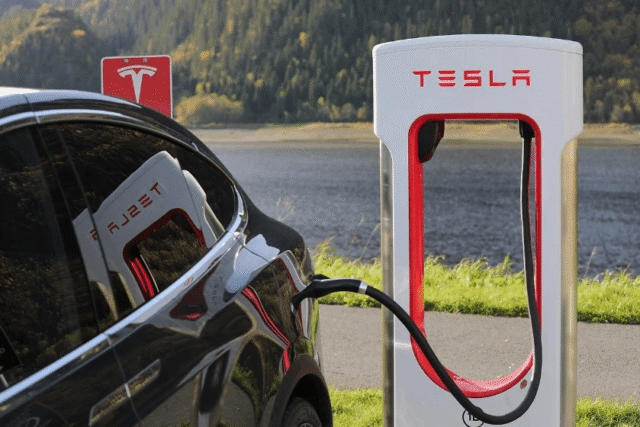
Tesla’s plans to ship components from China for its Cybercab and Semi electric trucks to the United States have been halted due to the escalating tariffs imposed by President Donald Trump, as reported by Yahoo Finance. This development poses a potential setback for Tesla’s strategy to commence mass production of these highly anticipated models, which have been highlighted by Elon Musk as key drivers of growth for the company.
Read also: Tesla Shares Drop Amid Market Concerns Over Reciprocal Tariffs
The tariffs on Chinese goods have surged to a staggering 145%, making it untenable for Tesla to absorb the increased costs, thereby suspending its shipping plans. Tesla had initially planned to begin trial production of the Cybercab in Texas and the Semi in Nevada by October, with mass production slated for 2026. The suspension has left the timeline uncertain, impacting Tesla’s broader business objectives, including its ambitious robotaxi service rollout.
According to data from the IndexBox platform, the U.S. has been a significant importer of Chinese auto components, accounting for 15%-20% of exports by value in recent years. This underscores the broader implications of the tariffs, which were intended to bolster U.S. manufacturing but have inadvertently affected Tesla’s operations. The company has also ceased taking new orders for its Model S and Model X vehicles following China’s retaliatory tariffs on U.S. goods.
As Tesla navigates these challenges, the focus remains on mitigating the impact of the tariffs while continuing to innovate in the electric vehicle market. The situation highlights the complexities of global trade policies and their direct effects on the automotive industry.









